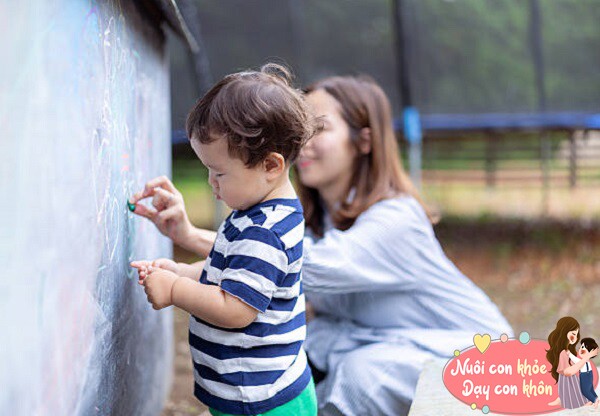Words, actions, and parenting styles can either be a warm sun that helps children grow and feel secure, or they can be cold and distant. When parents lack empathy and love in their parenting, they unknowingly plant seeds of sadness in their children’s hearts.


The habit of complaining and nagging: Termites that erode the foundation of a family
British writer Lori Lee once wrote: “In my childhood memories, all four seasons were filled with joy. This was all because I had a strong and optimistic mother, no matter the circumstances.”
However, many families experience the opposite. Research by American psychology professor Melanin reveals that in interpersonal communication, only 7% of one person’s impression of another depends on the content of the conversation, while tone accounts for 38%, and facial expressions and attitudes account for 55%.
When a mother speaks in a complaining and harsh tone, no matter how right her words may be, children will absorb negative emotions. “Is that all you can do? You’re so lazy”. Such complaints can sometimes spark family conflicts.

Expert suggestion for change: Believe in your child’s unique pace of development. Stop being overly anxious and trust that they will grow at their own pace.
Allow imperfection: Accept that your child will make mistakes.
Create a list of strengths: Find one positive aspect in your family every day and express it sincerely.

Criticism in any form: Undermining self-worth
Criticism, in any form, can undermine self-worth and deeply affect a child’s development. Such words can make children feel they are not good enough, leading to self-doubt and a sense of unworthiness. However, constructive criticism, delivered skillfully, can make a positive impact.
Tam Mao shared a story from her childhood. When she secretly took five coins from her mother’s drawer, she experienced a fierce inner struggle. Seeing her mother anxiously searching, Tam Mao quietly returned the money. A few days later, her parents “accidentally” gave her some pocket money—they had understood what happened but chose to protect her self-esteem with gentle forgiveness.
The purpose of criticism is to help children understand their mistakes. Psychological counselor Zhao Zhonghua points out: “Children grow through their mistakes, and the best way is for parents to guide them after they’ve made a mistake. Punishment and teaching are means, not the end goal.”

Expert suggestion: The art of criticism by a wise mother
Don’t criticize during meals: The dining table is for sharing emotions, not for judgment (as emotions directly affect digestion)
Don’t criticize in front of others: This can damage your child’s self-esteem and confidence.
Don’t criticize when your child is ill: When they are unwell or injured, show concern instead of lecturing.

Uncontrolled boasting: Increasing distance within the family
In modern society, family backgrounds sometimes become a source of comparison. For instance, parents may boast about their wealth, their children’s academic achievements, or luxurious vacations, creating pressure not only for themselves but also for their children.
These glittering displays and extravagant lifestyles fuel competition among families and can make children feel inadequate if they don’t meet these standards. In many cases, children who learn this behavior may lose themselves in an endless race.

Expert advice: To address this, families should build a strong foundation with positive values, emphasizing gratitude, humility, and sharing.
True education is like spring rain, silently nourishing all things. It doesn’t need to be flashy or boastful. Valuable lessons are often conveyed through small actions, unconditional love, and support during difficult times.
Instead of focusing solely on achievements, parents should create an educational environment where children are encouraged to explore, develop skills, and cultivate humanistic values. This way, children can grow up to be confident, loving, and respectful of themselves and others.







































